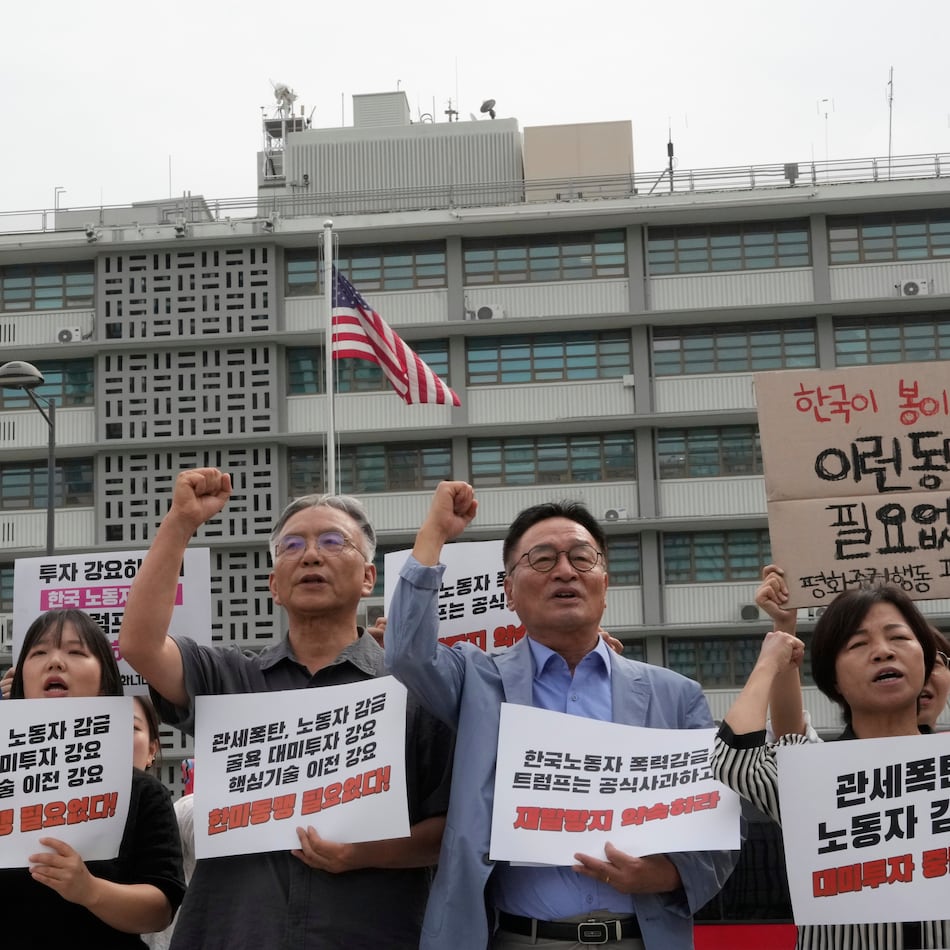Civil rights leaders are denouncing an Atlanta appeals court ruling that testimony about a white supervisor calling a black employee "boy" cannot be used as evidence of race discrimination.
In a motion filed last week, eleven civil rights pioneers asked the court to reconsider its finding that a plant manager's alleged use of the word "boy" was "conversational" and amounted to "ambiguous stray remarks" that were not made in the context of employment decisions. The 11th U.S. Circuit Court of Appeals said the comments did not show racial animosity.
The motion, written by lawyers for the NAACP Legal Defense and Educational Fund, said the 11th Circuit's reasoning "does not stand the test of history, experience, reality or the common social understanding of race relations in the country, particularly the South."
"It's ridiculous to think that anyone in the court system, anyone who's been to law school, would not understand this word -- particularly in the South -- was used to belittle African-Americans," said the Rev. C.T. Vivian, a former SCLC executive who also signed the motion.
Tyson spokesman Gary Mickelson said company policy is to provide a work environment free of unlawful discrimination, and Tyson takes such allegations very seriously. The 11th Circuit's ruling "supports our long-standing position that Mr. Hithon was not denied a promotion because of his race." The company has numerous African-Americans serving in a wide variety of leadership positions, he said.
In 1995, Tyson brought in a new plant manager, Tom Hatley, who is white, to improve operations at the money-losing facility. Hatley withheld wage increases for two white shift managers and both resigned, creating vacancies.
Hithon applied for one of the openings. But Hatley brought in two white men from other Tyson operations to fill the positions. Hatley has said he thought it would be better for his two new shift managers to have not worked at the poorly performing plant.
Hithon claimed Hatley used that explanation as a pretext and filed an employment discrimination suit. At his first trial, a federal jury awarded Hithon $250,000 in compensatory damages and $1.5 million in punitive damages.
At trial, Anthony Ash, a former plaintiff in the case, testified Hatley called him "boy" in the cafeteria during a lunch break. "Boy, you better get going," Hatley said, according to Ash's testimony.
"Everybody know being in the South, a white man says ‘boy' to a black man, that's an offensive word," Ash testified.
Ash's wife testified that she heard it and told Hatley, "He's not a boy. He's a man." Hatley walked away with a smirk on his face, she said.
Hithon testified that Hatley once said, "Hey, boy," to him as he was leaving a conference room.
Hatley has denied making the comments. In court filings, Tyson's lawyers say there is "no evidence that Hatley treated or spoke to white employees differently than he did black employees."
Tyson appealed the verdict and, in 2005, the 11th Circuit ordered a new trial and ruled Hatley's alleged use of the word "boy" did not prove racial animus. "While the use of ‘boy' when modified by a classification like ‘black' or ‘white' is evidence of discriminatory intent, the use of ‘boy' alone is not evidence of discrimination," the court said.
Hithon appealed and the U.S. Supreme Court summarily rejected the 11th Circuit's view.
"Although it is true that the disputed word will not always be evidence of racial animus, it does not follow that the term, standing alone, is always benign," the high court said in an unsigned unanimous opinion. "The speaker's meaning may depend on various factors including context, tone of voice, local custom and historical usage."
The case went back to trial, and Ash and Hithon again testified about Hatley's alleged use of the word "boy." This time, a jury awarded Hithon $35,000 in back pay, $300,000 for mental anguish and $1 million in punitive damages.
But in August the 11th Circuit threw out that verdict and ordered the case be dismissed. A 2-1 decision written by Judges Ed Carnes and Bill Pryor said there was no evidence that showed Tyson discriminated against Hithon. The court also stood by its earlier determination that testimony about the alleged use of the word "boy" did not prove discriminatory intent.
While Hithon and Ash found the word offensive, "the issue is not what was in their mind when they heard the term, but what was in Hatley's mind when he used it, and there was no new evidence about that," the ruling said.
In their motion, the NAACP lawyers wrote that whites called black men "boys" during slavery and segregation "to reinforce their racially subordinate status." The motion notes how the Rev. Martin Luther King Jr. encountered the phrase when a police officer called his father "boy" during a traffic stop and how he wrote about it in his Letter from Birmingham Jail. And it notes that thousands of black sanitation workers marched in Memphis in 1968 carrying signs proclaiming "I Am a Man" to demand respect and equal rights.
U.W. Clemon, the first African-American federal judge in Alabama who also signed onto the motion, expressed astonishment at the 11th Circuit's decision.
"To me, it is really a throwback to the time when federal courts were completely hostile to civil rights," said Clemon, now a private attorney. "It just appears to me that the judges who wrote that decision don't know the realities of everyday life. What else is it supposed to mean when a white man calls a black man ‘boy'?"
About the Author
The Latest
Featured


